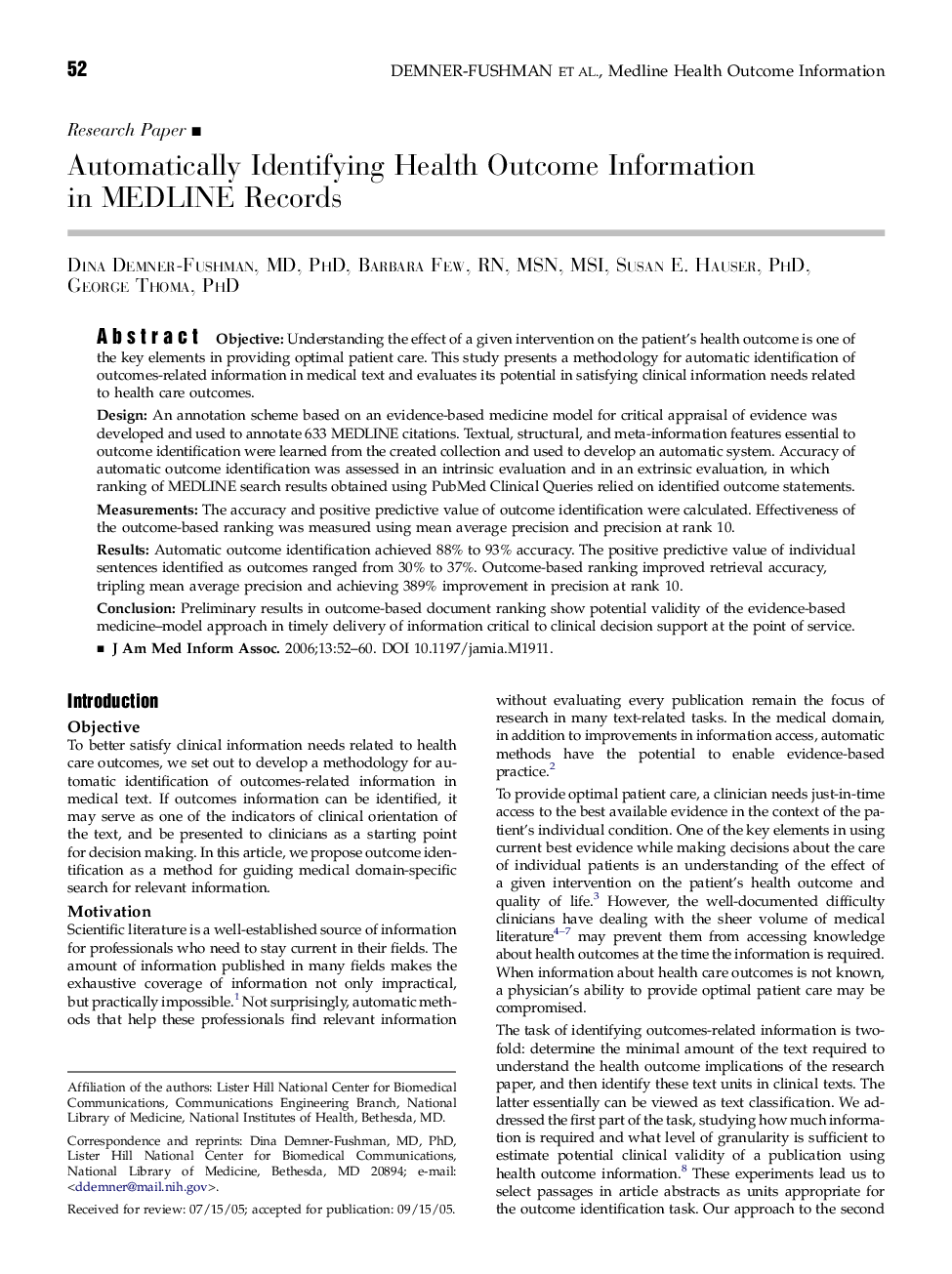| Article ID | Journal | Published Year | Pages | File Type |
|---|---|---|---|---|
| 517897 | Journal of the American Medical Informatics Association | 2006 | 9 Pages |
ObjectiveUnderstanding the effect of a given intervention on the patient's health outcome is one of the key elements in providing optimal patient care. This study presents a methodology for automatic identification of outcomes-related information in medical text and evaluates its potential in satisfying clinical information needs related to health care outcomes.DesignAn annotation scheme based on an evidence-based medicine model for critical appraisal of evidence was developed and used to annotate 633 MEDLINE citations. Textual, structural, and meta-information features essential to outcome identification were learned from the created collection and used to develop an automatic system. Accuracy of automatic outcome identification was assessed in an intrinsic evaluation and in an extrinsic evaluation, in which ranking of MEDLINE search results obtained using PubMed Clinical Queries relied on identified outcome statements.MeasurementsThe accuracy and positive predictive value of outcome identification were calculated. Effectiveness of the outcome-based ranking was measured using mean average precision and precision at rank 10.ResultsAutomatic outcome identification achieved 88% to 93% accuracy. The positive predictive value of individual sentences identified as outcomes ranged from 30% to 37%. Outcome-based ranking improved retrieval accuracy, tripling mean average precision and achieving 389% improvement in precision at rank 10.ConclusionPreliminary results in outcome-based document ranking show potential validity of the evidence-based medicine–model approach in timely delivery of information critical to clinical decision support at the point of service.
